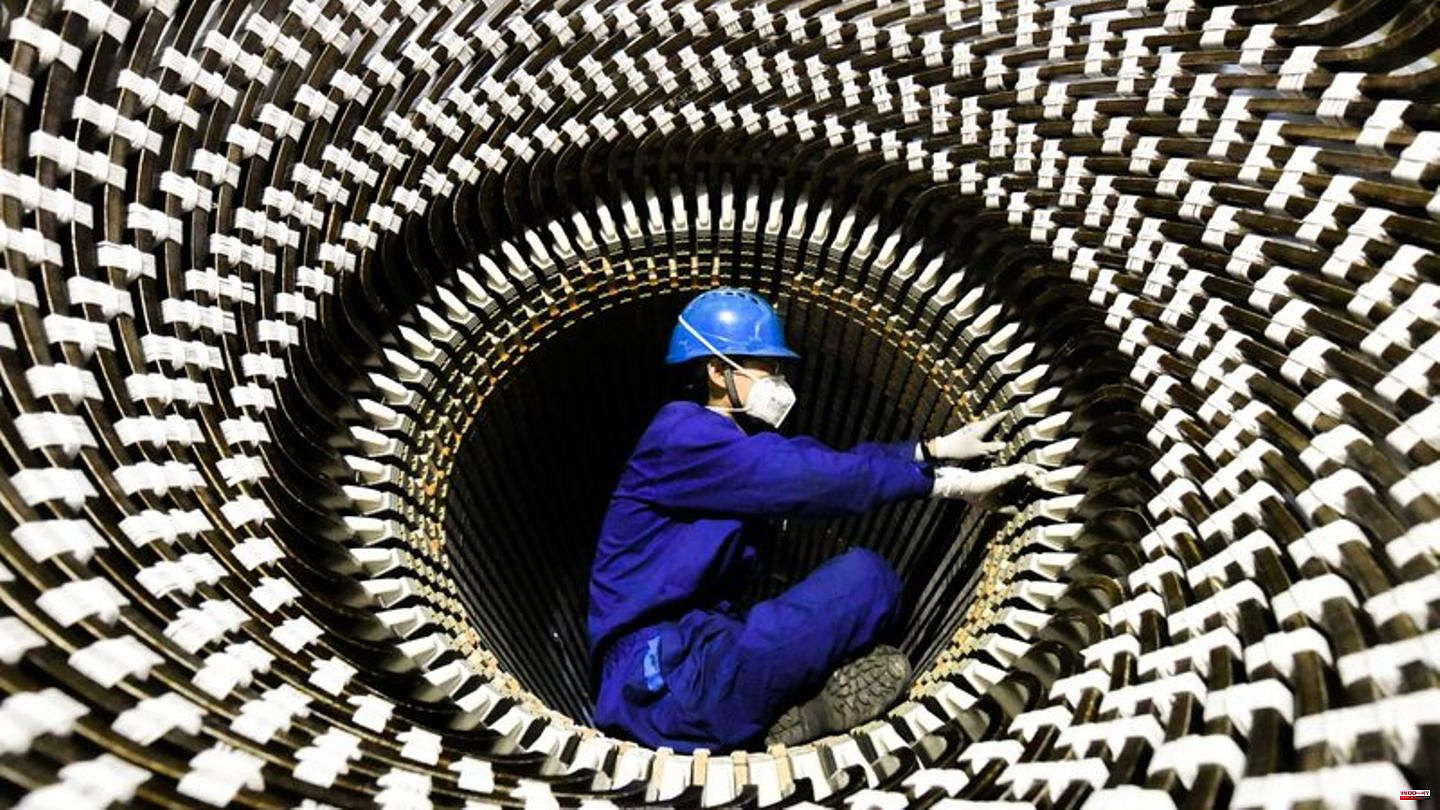Despite a slowdown in foreign trade, China's government expects the second largest economy to recover significantly in the third quarter. A day before the release of the new growth figures, the head of the powerful Reform and Development Commission (NDRC), Zhao Chenxin, told the press at the Communist Party congress in Beijing on Monday: "The economy really recovered in the third quarter."
He acknowledged "difficulties and challenges" and "greater than expected shocks" this year. There have been "some monthly fluctuations" due to the external environment, the pandemic, extreme weather and other unexpected factors, the top economic leader said. But overall, China is on the path to recovery and showing resilience.
In particular, the restrictions imposed by China's strict zero-Covid strategy are slowing down the economy. As the rest of the world tries to live with the virus, China's leadership remains committed to nipping any outbreak in the bud with lockdowns, mass testing and quarantine. The zero-tolerance goal is becoming more and more difficult to meet due to the new variants, which are spreading more easily.
Will China miss its growth target?
In the second quarter, the economy only grew by 0.4 percent. Experts expect 3.5 percent in the third quarter. The statistics office will announce the new figures on Tuesday. But the government is likely to fall well short of its growth target of 5.5 percent for the year. The World Bank expects only 2.8 percent in China. That would be only the second time in four decades that growth has been this low, following the first year of the 2020 pandemic.
"For the first time since 1990, the rest of Asia is growing faster than China," said Jörg Wuttke, head of the EU Chamber of Commerce in China, based on World Bank estimates. He pointed out that other Asian countries dealt with Covid-19 "fundamentally differently" and had "returned to normal". According to the World Bank, the region excluding China is expected to grow by 5.3 percent.
Of all of China's salient problems, "zero-Covid and how to get out of it" is the biggest, said expert Richard McGregor of Australia's Lowy Institute. "It just seems to be giving the economy a hammer blow." The International Monetary Fund (IMF) also warned of the risk that the biggest crisis in China's real estate sector to date "spills over" to banks, companies or local governments.
Export loses momentum
Weak global demand is also holding back Chinese export growth, which is a key driver. After an initial postponement of the publication of the new foreign trade figures on Friday, customs initially did not announce the development in September, even on Monday, the second day of the party congress. Reasons were not given. In the previous month, the export machinery had already lost momentum and only achieved growth of 7.1 percent.
In order to stimulate the economy, China's government is pumping money into the economy, although the high level of debt has long been a problem. The central bank has lowered interest rates several times. New bank loans nearly doubled in September. Unlike in Europe, where inflation is at record highs and interest rates are rising, prices in China have risen only slightly - in September by 2.8 percent compared to the same month last year.
Party Congress Merics SCMP Council on Geostrategy








